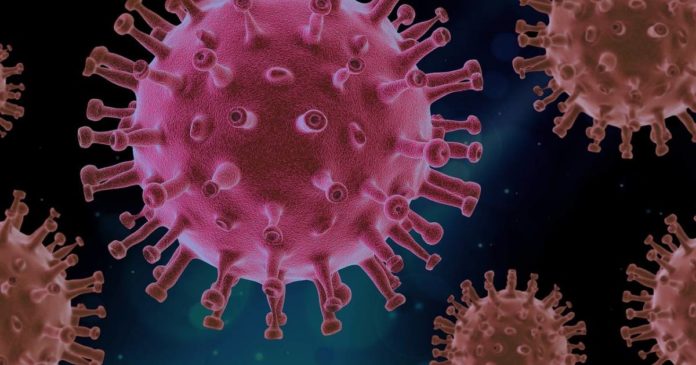A scoping review has looked at the potential of cannabinoids in treating early SARS-CoV-2 infection and long COVID-19 through endocannabinoid system modulation.
Cannabinoids are compounds that act on the endocannabinoid system – receptors in cells that alter neurotransmitter (chemical messenger) release and help regulate cognitive and bodily functions, including regulating the immune system and inflammatory processes. Animals, including humans, create their own forms of cannabinoids called endocannabinoids, but can benefit from the introduction of similar chemicals that are created by plants such as cannabis.
Research out of Dalhousie University, Halifax suggests cannabinoids have the potential to be used as a preventive approach to limiting the susceptibility and severity of COVID-19 infections. This could be achieved by preventing viral entry, mitigating oxidative stress, and alleviating the associated “cytokine storm”. A cytokine storm is a condition where the immune system of a patient responds too aggressively to infection – and it can be deadly.
Furthermore, cannabis and cannabinoid-based drugs have shown promise in treating many symptoms associated with post-acute COVID-19 syndrome state the researchers.
But.
“The majority of studies supporting ECS modulation as a treatment strategy have been conducted in contexts other than COVID-19, and therefore extrapolation of these findings to SARS-CoV-2 infections requires caution.”
Clinical trials and well-designed studies are required to investigate the underlying mechanisms, determine optimal dosages and dosing schedules, and investigate the safety and potential side effects.
“Therefore, despite the promising outlook, a comprehensive understanding of these aspects is crucial for establishing the therapeutic potential of cannabinoids and ECS modulation on the onset of COVID-19 and lingering symptoms associated with long COVID-19.”
The scoping review has been published in the Journal of Clinical Medicine.
Among studies looking at the potential for cannabis in tackling COVID-19 was Oregon State University research that found cannabigerolic acid (CBGA) and cannabidiolic acid (CBDA), could prevent the coronavirus causing COVID-19 from invading human cells. Another indicated cannabidiol (CBD) could help reduce some of the more extreme health impacts on patients facing complications from COVID-19.
The relationship between smoking marijuana and COVID-19 outcomes has also been examined, with a study finding marijuana users experienced lower acute respiratory distress syndrome, acute respiratory failure, lower severe sepsis, in-hospital cardiac arrest and lower mortality.


